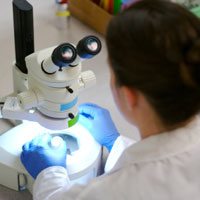
Home | DNA Testing Learning Center | Paternity Testing | How To Order DNA Tests | Home Paternity Tests | Contact Us
Paternity Testing - Reasons forThere are many advantages to using 4TRUTH Identity's DNA Center Paternity Testing including: Contesting paternity, confirming paternity, establishing paternity, concerned about inconclusive testing by another DNA lab (needing a independent second opinion test) or concerned about a false positive report from another DNA laboratory. Financial Support / Child Support: Legitimation / Visitation, Parenting Time / Custody: Social Security Benefits: Military Allotments: Worker's Compensation: Health Insurance: Genetic Information: Inheritance Rights: Paternity Testing Possibilities:
|
|
|
|
911DNATest.com I wanted to thank you for helping me and my child. With your help, I was able to prove that my late boyfriend was my child's father. My child is the sole heir of his estate and will be well provided for. And I now have a great relationship with my child's grandmother. -- No longer frazzled mother
** Results may vary, 4TRUTH IDENTITY cannotguarantee the same results for all of our clients. |
In Georgia and Metro-Atlanta
911DNATest.com is Powered by 4Truth Identity's DNA Center
Copyright © 2001-2012, 4Truth
Identity Inc, All Rights Reserved.
This material may not be published, broadcast, rewritten, or
redistributed without prior written permission.
Trademarks and
copyrights are the property of the respective owners and may not be used without permission.
Our testing laboratory is accredited by the American Association of Blood Banks (AABB), ACLASS Accreditation Services (ISO/IEC 17025), ASCLD / LAB-International, College of American Pathologists (CAP), Clinical Laboratory Improvement Amendments (CLIA) and the New York State Department of Health (NYSDOH) for legal DNA testing services including but not limited to: Paternity Testing, Maternity Testing and Immigration Testing services.



